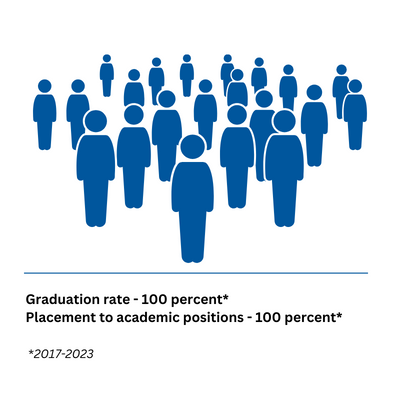
The Duke University Doctor of Physical Therapy Division Faculty Development Residency begins every year in August. The application is now open for residents enrolling in August 2024. Our program has a long history of leadership and didactic and clinical education expertise and is a national leader in credentialed residency and fellowship programs. A wide range of resources within the Duke University Health System, the Duke School of Medicine, and partner institutions enhance the development of educators. Our Faculty Development Residency program has been accredited by the American Board of Physical Therapy Residency and Fellowship Education (ABPTRFE).
We're Growing!
Duke University's Duke Doctor of Physical Therapy Division signed an agreement with Northeastern University to expand its Faculty Development Residency program to help prepare more highly effective PT professionals for faculty and administrative roles. The agreement extends Duke's rich academic expertise and leadership in credentialed residency and fellowship programs to prepare more PT professionals for academia. Prospective faculty development residents can now apply for a placement at Duke or Northeastern through Dec. 31, 2023, for the residency program at either site that begins in fall 2024. Read more.
For more information about the residency and the application process, please contact Faculty Development Residency Director Dr. Kyle Covington.
Apply
DPT Faculty Development Residency applications must be submitted through the Residency and Fellowship Physical Therapy Centralized Application Service (RF-PTCAS). Click here for Duke's application. If you have not yet created an account, you will be prompted to do so before accessing our application.
Learn more about the application process. View the Faculty Development Residency Financial Fact Sheet.
Key Dates
- Oct. 15: The RF-PTCAS Application opens
- Dec. 31: Application deadline
- Participate in a competitive nationwide application pool that will matriculate candidates chosen based on their experiences, qualifications, and interests
- A Doctor of Physical Therapy degree
- Eligible for licensure in the state of North Carolina
- Minimum of four years of practice experience at the time of application
- Demonstrated experience in teaching physical therapy
- Two professional letters of recommendation submitted through RF-PTCAS
- A focused area of clinical experience, though not required, will be viewed favorably
- Eligible applicants will be invited for an interview
- New faculty residents will enter each year from July–August
- 24-month residency
- 0.8 FTE in the Doctor of Physical Therapy program
- A minimum of 30 hours per week of instructional preparation, classroom, and laboratory teaching, and student assessment
- 0.2 FTE in clinical practice with a local health system or private clinic is recommended
- Each resident will have regular mentoring sessions with the residency director(s), Initially once a week, progressing to twice a month.
- Twice monthly mentoring sessions with the DPT Faculty mentor.
- Identification of an external mentor with quarterly mentoring sessions.
- Regular mentoring sessions with other DPT faculty and residency partners at other campuses.
- 24 didactic modules covering classroom management, test writing, academic advising, higher education structure, educational assessment, accreditation, and team-based learning.
- Matriculated residents will be assigned to teach in focus areas of their interest, including but not limited to clinical education, musculoskeletal PT, neuromuscular PT, or other components of the standard DPT curriculum.
- One capstone educational project.
- Each resident will be assigned to manage didactic content in a focus area.
- Each resident will be assigned other didactic content as needed.
- Residents will regularly undergo 360-degree evaluations of their classroom management, teaching, and student assessment.
- Supervised teaching may be replaced by clinical education administration if a resident is interested in clinical education.
- Teaching and committee opportunities across the health system that focus on interprofessional education.
- American Physical Therapy Association conferences: Educational Leadership Conference, Combined Sections Meeting, Carolina Clinical Education Consortium Spring/Fall meetings.
- Medical Education Grand Rounds.
- Duke AHEAD events.
- Duke Teaching for Equity Fellowship.
Residency Outcomes

Duke University is an Affirmative Action/Equal Opportunity Employer committed to providing employment opportunities without regard to an individual's age, color, disability, gender, gender expression, gender identity, genetic information, national origin, race, religion, sex, sexual orientation, or veteran status.
Duke aspires to create a community built on collaboration, innovation, creativity, and belonging. Our collective success depends on the robust exchange of ideas- the best exchange when the rich diversity of our perspectives, backgrounds, and experiences flourishes. To achieve this exchange, it is essential that all community members feel secure and welcome, that the contributions of all individuals are respected, and that all voices are heard. All members of our community have a responsibility to uphold these values.